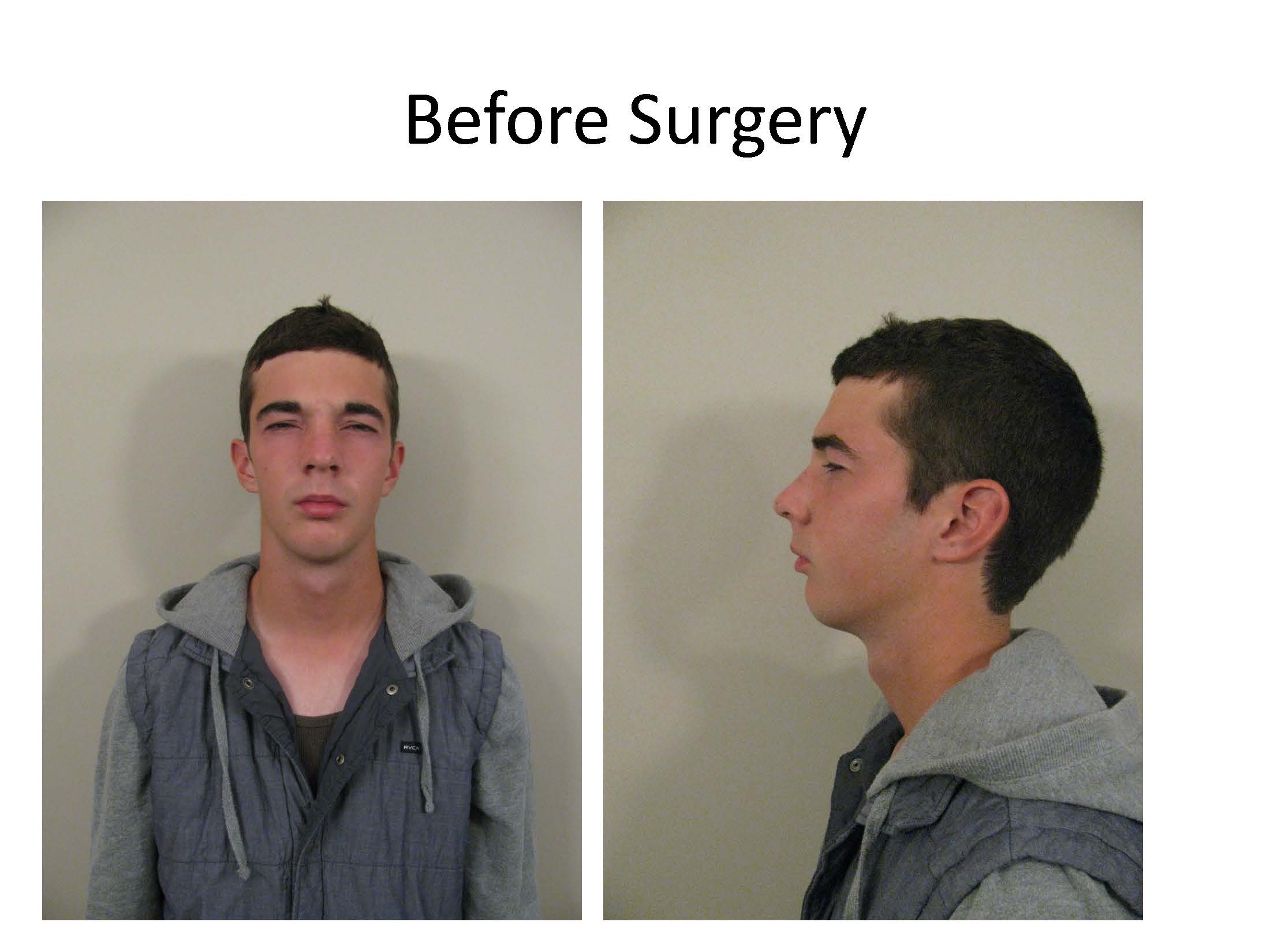
Robbie Patterson had a malocclusion - extremely poorly aligned teeth caused by misaligned jaw bones. Only his back molars touched slightly and, as a result, he was unable to chew food properly.
The 19-year-old's face was rounded and his chin touched his neck. With the excess pressure on just a few of the teeth he uses, his jaw joints were at risk of eventually developing further problems.
Patterson's decision to undergo major surgery to reposition his upper and lower jaw was not easily made but necessary. During surgery, the upper and lower jaw bones are cut and moved to a new position to better align the bite. The bones are then held in position with titanium mini screws and bone plates. The jaw is then closed during recovery using elastics so there is no movement or opening of the mouth. This enables the bones to properly heal.
"It was a difficult road to travel," says Patterson, who notes that his years-long relationship with his surgeon and orthodontist prior to the surgery left him feeling confident in his decision. "They were very personable and open to any and all of the concerns I had. I was armed with the correct knowledge to allow me to choose whether or not to go through with this procedure. The regular meetings we had helped boost my trust in them as professionals and as people I could trust to accomplish such a surgery."
But deciding to undergo dental surgery is not to be taken lightly, say dental experts. It's an elective surgery and process that requires a team approach to be successful. Your general dentist, orthodontist, oral and maxillofacial surgery specialist, nurses, general doctors and an entire hospital care system all play a vital role. Not to mention your family and support network needed during recovery.
"Kids have to be prepared mentally and we need to let them make the decision," says oral maxillofacial surgeon and dentistry professor Tom Stevenson. "If you are not sure, always ask for second opinions."
In Patterson's case, surgery was the only way to correct his problem. His dental issues are genetic and came from an inherited growth pattern. For Patterson, the decision to undergo surgery took more than a few years. His father, who is a dentist, ultimately left the decision in his hands.
"The recovery was very difficult and this was the biggest and most serious surgery I ever had. Having my jaw wired shut and with a splint between my teeth, which blocked my tongue, made it impossible for me to talk," says Patterson. "My recovery was largely successful because of my
mother who helped me every second of the day with my medications, cleaning my teeth, getting the nutrients I needed through experimental smoothies and liquefied meals."
Since the surgery, Patterson says he's noticed significant changes in the functionality of his jaw and teeth.
"I have the confidence to smile and my jaw isn't so narrow. So, although these momentarily inconvenient and uncomfortable procedures did bring me pain and soreness as well as other emotional battles I needed to overcome, it was a worthwhile journey," he says. "The surgery was worth every penny and every ounce of agony."
Stevenson says this type of elective surgery is common and oral surgeons will typically wait until the patient has stopped growing so there is less chance of relapse.
"It's not necessarily something that needs to be done right away. While there are some instances where we suggest operating at a younger age, we try to treat patients later in their teens. With males, we will wait even longer," says Stevenson. "Always learn the advantages and disadvantages of every surgery you are considering. If you are unsure of something, be sure to ask plenty of questions."